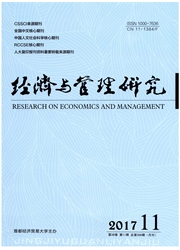

 中文摘要:
中文摘要:
基于制度观和高阶梯队理论,本文构建了高管的儒教虔诚与企业创新绩效间的微观—宏观联系。研究表明,高管的儒教虔诚的确会对企业创新绩效带来负面影响,这种影响通过企业战略选择的间接影响实现:高管的儒教虔诚会增加企业的战略实用性、降低企业的战略冒险性,从而降低企业创新绩效;战略实用性通过负向影响战略冒险性也可以间接降低企业创新绩效。此外,高管对正式制度的感知可以直接抑制儒教虔诚对企业创新绩效的负面影响,通过降低儒教虔诚对战略冒险性的负向影响而间接降低对企业创新绩效的负面作用。本研究确定了战略实用性和战略冒险性的完全中介作用,以及高管的正式制度感知的调节作用和被中介的调节作用。
 英文摘要:
英文摘要:
Based on the institutional perspective and the upper echelon theory,this paper constructs a micromacro relationship between top managers' Confucian piety and organizational innovation performance. The results show that the Confucian piety has negative effect on innovation performance. This effect is achieved by the indirect impact of corporate strategic choices:top managers' confucian piety increases the pragmatic strategy and reduces the strategic risk, thereby reducing the performance of enterprise innovation;the pragmatic strategy indirectly reduces the performance of enterprise innovation by negatively influencing the strategic risk. Besides, it is found that top managers' perception of formal institution can directly reduce the negative influence of Confucian piety on innovation performance, and this perception also indirectly reduces this negative influence through restraining its influence on risk-taking strategy. This study also confirms the full mediating roles of pragmatic strategy and risk-taking strategy between Confucian piety and innovation performance, and the moderating roles and mediated moderating roles of perception of formal institution.
 同期刊论文项目
同期刊论文项目
 同项目期刊论文
同项目期刊论文
 期刊信息
期刊信息
